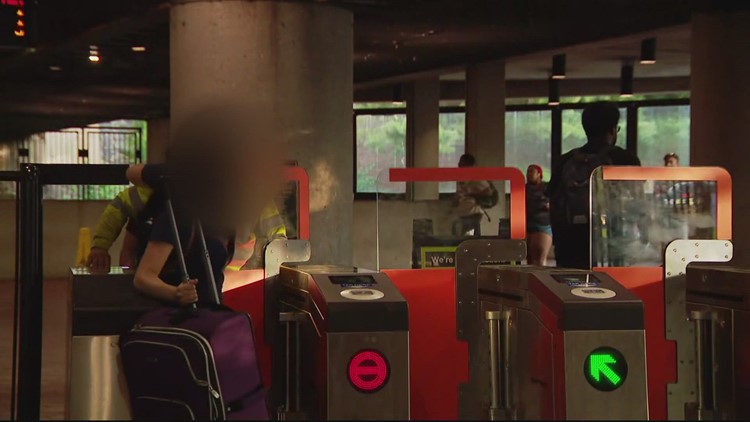WASHINGTON — If you’ve ever swiped into the Metro and felt a stranger suddenly on your heels, congratulations—you’ve been "piggybacked." This term refers to the fare-dodging move where someone closely follows a paying customer through the gates, taking advantage of their swipe to slip in or out without paying. The tactic, equal parts awkward and aggressive, has gained renewed attention as the Metro steps up its fight against fare evasion with five-foot-tall gates.
What’s piggybacking?
So, you swipe your card, step forward, and suddenly someone is right behind you — maybe even giving you a nudge — as they try to squeeze through before the gate closes. Reddit users have been swapping horror stories about piggybacking encounters, ranging from brazen bump-ins to outright shoving matches. One user shared a recent incident:
“Felt them bump into me, and they start pushing while shouting, ‘Who are you pushing?’ It was just bizarre.”
While some passengers opt for the “stand and stare” method to deter freeloaders, others argue that station managers should be more accessible to assist passengers with legitimate issues, like adding funds or resolving card errors.
Are the tall gates working?
The Washington Metropolitan Area Transit Authority (WMATA) introduced the towering gates at all 98 Metro stations after a pilot program showed promising results. These gates have reportedly led to an 82% drop in fare evasion, proving they’re more effective than the older, shorter gates.
Metro General Manager Randy Clarke acknowledged the difficulty of completely eliminating fare evasion:
“We are never going to completely stop fare evasion, but these go a long way in addressing the problem.”
Yet, even with these measures, fare-dodgers remain resourceful. From piggybacking to vaulting over the gates, some commuters seem determined to ride for free.
What's the big deal?
Beyond the personal annoyance of being piggybacked, fare evasion costs Metro millions of dollars annually. That’s money that could be used to improve service, maintain infrastructure, or even keep fares stable for paying customers, according to Metro.
Metro Transit Police have also ramped up enforcement, issuing nearly 10,000 fare evasion citations in 2024 — a 300% increase from the previous year. Combined with upgrades to fareboxes on Metrobuses, which now accept cash and SmartTap payments, the Metro system is working to address the issue across all modes of transit.
How to deal with piggybacking
If you find yourself the target of a piggyback attempt, experts (and Redditors) recommend standing your ground—literally. Step aside, stop walking, or make it clear you’re not complicit in their sneaky antics. And if all else fails, alert the station manager or Metro Transit Police.
One Reddit user offered this hilarious (and effective) strategy:
"I just stop and start signing. People don’t know what the heck to do with me.”
Piggybacking might be the latest Metro buzzword, but it’s far from a new problem. With taller gates and increased enforcement, WMATA is making strides in curbing fare evasion. Still, the battle isn’t over. As one Reddit user aptly put it:
“Public transportation should be free... but here we are.”
So the next time you’re riding Metro, keep your wits (and your wallet) about you. And remember: A little courtesy at the gates goes a long way — for everyone.



